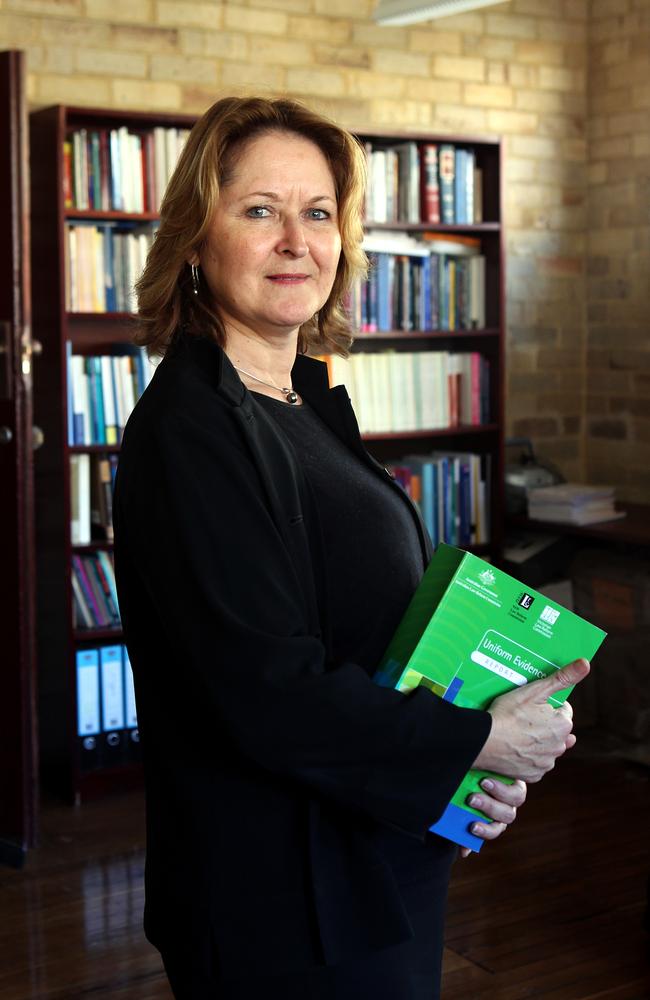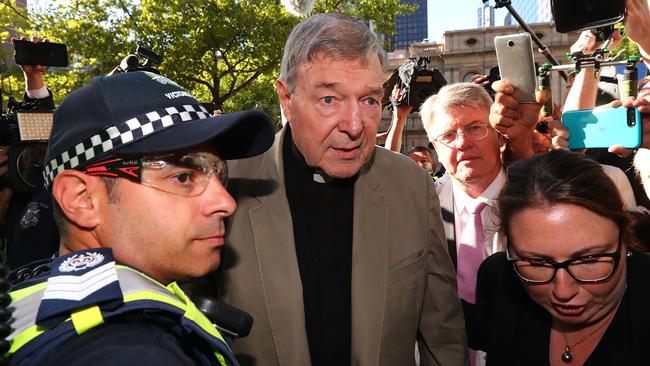How one man’s memory brought down Cardinal George Pell
Debate continues about whether one man’s memory of a 20-year-old event can be relied on in George Pell’s case. Now, the experts weigh in.
How reliable is the memory of one person, of an event that happened more than 20 years ago?
It’s the question that appears to be echoing across Australia after it was revealed this week that Cardinal George Pell was found guilty of child sex offences.
Ever since the story broke, many have questioned how one of the most powerful men in the Vatican and Australia’s most senior cleric could be brought down by the testimony of one man.
Some have pointed out inconsistencies in the scenario presented in court and believe Pell has been wrongly convicted.
Others concede that something bad could have happened to the complainant but he may have got confused, mistaking Pell for another priest perhaps?
Some sceptical of Pell’s guilt have pointed out the impossibility of his garments being pushed aside to reveal his erect penis, among other criticisms.
Professor Jane Goodman-Delahunty of Charles Sturt University is an expert in forensic psychology and a lawyer who looked into these issues for the royal commission into institutional responses to child sexual abuse.
She was among a number of experts who produced a report into issues of memory and the best ways for complainants to give evidence in legal proceedings.
She told news.com.au abuse victims typically remember core details of an event very well even over many years, including the nature of the contact and the identity of the perpetrator.

While Prof Goodman-Delahunty can’t comment on specific details in the Pell case, she told news.com.au that when it comes to mistaken identity it’s relevant to consider how well known or familiar the accused was to the complainant.
In Pell’s case, and according to Louise Milligan’s book Cardinal: The Rise and Fall of George Pell, the Cardinal was a “regular presence” in the lives of the two choirboys who sang at St Patrick’s Cathedral before he forced them to perform oral sex on him.
The complainant was also abused by Pell on a second occasion a few months later.
Prof Goodman-Delahunty said it was more likely for a person to be confused about identity when they only encountered the attacker once, for a brief period.
RELATED: Why the complainant in George Pell’s trial was so compelling
“Sometimes people can confuse the sources of memories but the kinds of confusion tend to be more minor or peripheral details,” she said.
This could include things like clothing because as we get older the brain tends to fill in gaps in our memories with our increased general knowledge.
“If you knew as an adult what a priest typically wears, you might infer that the individual was wearing that set of clothing from general knowledge and incorporate that in your memory,” she said.
“The older we get the more likely our memory is likely to be shaped to some degree by our semantic (general knowledge) memory.”

Interestingly, people who experience a single episode of abuse rather recurring abuse, tend to have a clearer and stronger memory of the abuse.
“When abuse is repeated we tend to develop a template or script for the events,” she said.
“Once we have a script for the event, we use the script rather than encode the individual details.”
This is why people who have experienced recurrent abuse can have less coherent memories.
But even if the details aren’t that consistent, the main details of the event are remembered very well.
“Most typically abuse victims remember core details of an event very well over many years — the ‘who’ and the ‘what’ — the nature of the contact and the identity of the perpetrator,” she said.
They are also more likely to remember an event if it is something that happened to them personally rather than something they witnessed happening to someone else. This is especially true if it involves touch or intimate touch by someone that they know.
The accuracy of memory is especially important in child sex abuse cases because they tend to succeed or fail depending on the testimony of the complainant.

“Legally it’s a word-against-word case and legally the evidence of one witness, if found credible, is sufficient,” Prof Goodman-Delahunty said. “The law allows for conviction based on the evidence of one person.”
In these cases the status of the person being accused, even if they are the third most powerful man in the Vatican, does not matter.
But the fact that these cases generally hinge on the word of one person against another, and often involve offences that happened in the past, make them very difficult to prosecute.
Prof Goodman-Delahunty’s commission report noted that only about 8-9 per cent of child sexual assault cases reported to police are prosecuted.
“Without a doubt it’s rare to succeed and some of the difficulty has to do with misconceptions about memories,” Prof Goodman-Delahunty said. “There is a common misconception that memories should be perfect.”
Prof Goodman-Delahunty said no-one’s memory functioned like a videotape recording and if someone did tell a story the same way every single time, that could actually indicate they are lying.
“People are susceptible to cues and respond to questions being asked to retrieve information. If you are asked a different thing by a different person, what you recall about the circumstances might differ.
“You don't always recall it or tell it in the same way.”

Prof Goodman-Delahunty said some of the latest research was starting to show that if memories are very consistent, this could be a sign people are lying.
“In order to appear truthful, they are producing a consistent report but that’s not what genuine people do,” she said.
Prof Goodman-Delahunty said since the royal commission had published its findings and recommendations, educational programs had been launched to educate those in the legal system about how memory worked.
Prosecutors are now taking a closer look at cases they may have initially dismissed due to gaps or inconsistencies in memory.
“They are now looking more closely, and thinking maybe it is the sign of a genuine memory?” Prof Goodman-Delahunty said.
“Is the inconsistency something minor, like the colour of the pyjamas someone was wearing? Does that mean their report of abuse is inaccurate?
“There’s much more appraisal in light of the research and that’s very encouraging.”
Continue the conversation @charischang2 | charis.chang@news.com.au

